|
Now that I'm trying to have this blog be more active, it seems appropriate to discuss my theological leanings. Not to convince people to hold all the same views that I do--though I wouldn't mind if that happened--but as a means of clarity about this blog. It is helpful to you, as a reader, to know where I'm coming from when I discuss theological topics. It lends clarity to what I'm saying, it helps you determine the degree to which you trust my analysis, and it gives you a means to hold me accountable. If I say something that grossly contradicts a belief I hold, you can know that it is either being misunderstood (as in, I must have meant something more in line with the larger body of my belief and writings), or you know to ask about how I can hold those views in tension. It's also helpful for me, because it forces me to sit down and think through each of these topics carefully, and examine my broader views in light of these basic understandings. I think we should each take some time now and then to really examine things we've taken for granted in our belief system, analyze exactly where we stand on them, and ask if we find ourselves disagreeing with these matters in any other area of our lives. It keeps us honest, it keeps us focused, and it helps us to have a more cohesive worldview. While I respect the quick read and simple clarity of stating broad theological affiliations (like declaring oneself Reformed in their statement of faith, and allowing that one word to do a lot of heavy lifting in understanding the author's theology), that will not be the approach here. One, because it doesn't allow for the full reflection I'm going for. Two, because this is a blog, and it's my blog, and I like details. And three, because I don't always find myself fitting into neat little theological boxes. I don't claim either Calvinism or Arminianism, for instance, a point which has caused much confusion in people around me (I'll get to that later in the series). So, this will be a series of posts, each of which will detail some aspect of my basic theological foundations. These posts will go up on Tuesdays going forward. But first, an introduction into who I am and how I got to the theological place I now hold. So you understand where things I say are coming from. This is essentially personal testimony stuff, much of which I've mentioned in some form or another on various websites and posts, so feel free to skip it or proceed as you wish.
I've been in church as long as I can remember. My family attended a body called New Life Covenant Church, which met in an adapted mess hall of a former campground outside of Sharpsville, PA. That body no longer exists; the church building is still standing, complete with the geodesic dome we built as our new sanctuary shortly before my teens, but it's now inhabited by a different congregation, using a different name, that I'm told might have a couple familiar faces in it. NLCC was officially nondenominational, but really, it was a Pentecostal church. I learned a very Arminian and Dispensational theology there, though in retrospect I don't actually know if that's because the teaching was Arminian or because that's just what I gleaned from it. It was absolutely Dispensational though, which made the name stand out as odd. People expected New Life Covenant Church to teach Covenant theology, and reasonably so, but that was not the case. I remember the hype when the Left Behind books came out, the fear I had that I'd missed the rapture every time I expected people to be around and they weren't, and the timelines of where each dispensation fit in redemptive history. The first book of the Bible I sat down and read straight through was Revelation, because the teaching I'd received gave me the impression it was the most important book to have a hang on. It was during worship practice, while my dad was singing on the stage, and I sat there in the second row with my Bible and my sketchbook and read the whole thing and drew pictures of what the words seemed to be describing. I was probably in like third grade and it didn't really clear anything up for me.
I was baptized a few times there, because I didn't really understand that it didn't need to happen every time I understood something different, and when that finally stuck I was baptized in the Holy Spirit. This consisted of standing in the church library (the top right window of the rectangular building in the picture above) with the elders of the church praying and laying their hands on me until I started speaking in tongues. I felt a bit guilty at the time, because I suspected the result was at least partly my own doing to get it over with, but the elders didn't seem to notice and I figured God would sort it out. But tongues as a prayer language was an important part of life there, and I continued to do it into my teens. When I joined Cub Scouts, however, I started to get exposure to a different take on the Christian faith. Our local troop was sponsored and used the space of a Presbyterian church, and one of the church's stipulations was that a couple scouts serve as ushers once a month, in uniform. I did this a number of times, and found myself wondering whether true Christianity was a much broader religion than I'd been led to believe, or whether one or both of the churches I was attending were wrong about what true Christianity was. My dad had already started teaching my brothers and I how to use study Bibles and concordances and perform in-depth study on our own, so I had the means to start looking into some of the claims each church was making. I was, therefore, a bit prepared to get an answer when NLCC took a wild turn. My time at NLCC coincided with the Brownsville Revival and the Toronto Blessing, and after our founding pastor left and his associate took over, the church began to set its focus on being part of this revival movement. Shortly after that change took effect, I walked into the sanctuary and had a vision, which I took to the new pastor and explained. When asked for an interpretation, I told him the church was poised to receive a massive blessing and see a revival start, but we had to stay the course and focus on Christ and His work in us. I was declared a prophet from the pulpit, and then the church went ahead and focused on getting signs more than encountering God. The sermons grew shorter and shorter and pulled less and less from scripture. My dad, an elder, saw that the church was deviating away from the Bible and we stayed for years as others left so he could try to pull it back on track. Eventually I had a second vision, and when asked again for the interpretation, I told the pastor that we'd missed the blessing reserved for us by going off track, and had a lot of repentance to do if we wanted to be part of His work in the area. I was, at that point, told that I was an ignorant kid who didn't know what he was talking about, so I walked out of the sanctuary and didn't return until the day my dad announced we were leaving the church. In the wake of this, I spent some time examining my faith. I don't know if they had a term for it at the time (though some may have called it backsliding), but what I did at that point was essentially what's now being called deconstruction. I started by asking if the foundational claim of Christianity, that Jesus Christ is God as evidence by raising from the dead, was true; having become convinced of that, I started building my beliefs bit by bit through analysis of different things I'd been taught. I ended up in Baptist churches, the first of which was called New Life Baptist Church (which I found an amusing circle for myself), where I was baptized as a believing adult who actually understood what I was doing. I'm no longer Arminian or Dispensationalist. I'm still in the process of understanding the full array of what I believe to be accurate Christian theology, and likely will be continuing to develop some aspects for the rest of my life. My beliefs about the church and our individual relationships to it, for instance, are currently being rewritten as I'm studying it in class and Bible study. As such, some of the things I address in this series may shift somewhat over time. There are things that I know won't change; I've done the research already and don't foresee any way of being convinced Christ didn't rise form the dead, for instance. But on the other hand, my view on the end times has never been as solid as I thought it was when I was a kid. I know that will likely change as I learn more about it. So keep that in mind as we explore these topics, that this series is a snapshot of where I am now on a process that started decades ago and will hopefully continue for many decades to come. I am open to your input on the places we agree or differ, and will incorporate how I came to a given view in light of the existing beliefs as much as I can.
3 Comments
On Saturday, October 19, I attended the Central/Western Massachusetts event for Small Town Summits. As I've started to do with sermons and other studies, I wanted to blog through my processing of the things I saw and heard there. While not officially part of this series of posts, I did also blog about some pretty personal struggling I have had that were addressed by God through the event. Before I do posts on specifics, though, I wanted to paint the big picture of the day and explain what Small Town Summits is.
I've been involved in church planting, in some capacity or another, since 2008. In that time, in my experience, the focus has been on strategic placement of new churches or revitalization efforts. If you want to get a sending network involved or a church to give money or a team to come together, you've had to sell them on how big the impact of that church could have. Talk about the millions of people that live and work and pass through the city. Talk about the colleges that bring in large numbers of students from around the world and then send them back out, hopefully (with your church's help) carrying the gospel with them. In a pinch, you can sell the town's impact to its smaller neighbors and role as a hub of commuters that work in the bigger, more important city. There's good reason for targeting these locations, and Small Town Summits explained at the event that they recognize their importance. The problem being raised, however, is that there are millions in America, billions around the world, who do not live in nice strategic locations, and our laser focus on making a big impact has left far too many of these people without a gospel witness and so many small town pastors feeling like they have no support.
The instinct is to read the description of small places and assume they're rural, but it was explained that that isn't always true. While a great many rural communities would qualify, so can cities and regions within cities. The best definition for their target communities would seem to be a negative one; if the community cannot be described as a hub of culture, economy, influence, government, or education, and would therefore be overlooked by strategy-focused church planting efforts, they want to be there. The summits are designed to be affordable and easy to access, hosting them across New England. Their next listed event is a Bible Training for Women in March 2020.
The summit was a great time. I met people who came from southern Vermont, the Berkshires, the Worcester area, and southeastern Massachusetts. I was able to meet the new pastor of a small church I preached at during their pastoral search and get some updates on how they're doing and exchange information. I made a lot of connections and had some great conversations and picked up some ideas that we may be able to adapt in our church. I got to catch up with some friends I haven't seen in a while who came in for the event. As will be discussed in the following posts about each session, we basically had two main speakers and they both did a great job of presenting the importance of small place ministry and some practical concerns that arise in that context. The worship was very good and, while I had only heard one song before, any confusion on my part was my own fault for forgetting to listen to the tracks I was emailed in advance. The food was great and the hour given for lunch gave us plenty of time to meet the people sitting around us. The brevity of the event does mean that there were a small number of topics that could be handled well, but the ample time to make connections with people serving across the region should prove to make up for that over time for anyone who wants to put in a little effort to do so. All in all, I feel it was a day very well spent, I was personally impacted in a big way by the summit, and I look forward to pursuing some of these new relationships and attending more summits in the future. If you are in New England, I encourage you to go to their website and try to attend an event near you as soon as it becomes available.
The epistles are a deeply important part of the New Testament and the Bible as a whole. Where the gospels reveal the person and teaching of Jesus and the example He sets and detail His atoning death and resurrection, and Acts gives us insight into how the early church was formed and functioned in light of all of that, it is the epistles that really unpack for us what so much of this means for our daily lives, how the teachings of Jesus became the theology of the church, and how the whole story of the Bible fits together and hinges on Christ. Of the twenty-two epistles, we can say for certain that thirteen were written by Paul. These Pauline epistles tend to be more densely packed with theological discussion, openly addressed to specific situations and therefore concerned with very concrete application, and longer than the remaining epistles. This is great for the unity of our understanding, but it does tend to mean that our preaching and study of these issues are frequently limited in scope to one man's theology--admittedly, a man writing scripture under the divine inspiration of the Holy Spirit and therefore trustworthy in his teaching, but still only one man--when there are nine other books that explore some of the same themes and can offer, at the very least, a different perspective.
The following three posts will each study the general epistles' handling of one major theme. The first theme will be false teachers, the second will be on redemptive history and the nature of salvation, and the final one will be the Christian life. This sequence is intentional and bears consideration when reading the following posts, because the overarching sequence will influence how they are each presented. We will begin by narrowing our focus only to that which is valid theology, and then we will explore the heart of that theology, and then how to live that theology out.
|
Scripture quotations taken from the NASB. Copyright by The Lockman Foundation
Archives
January 2023
Categories
All
|
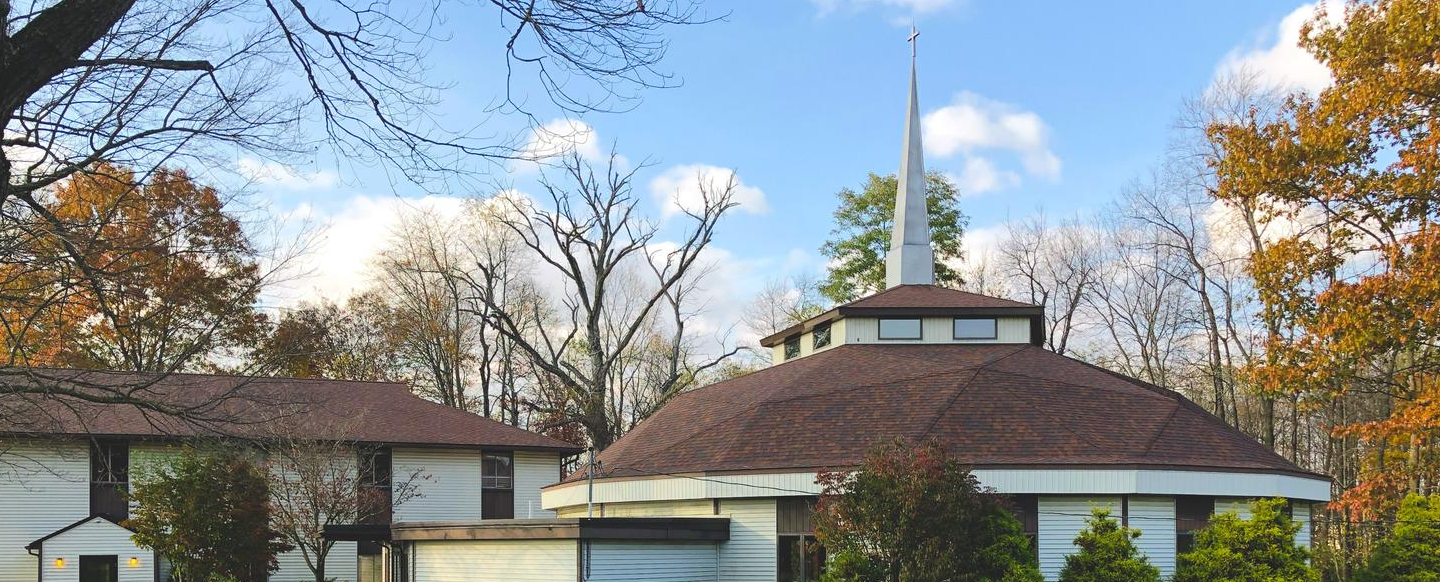

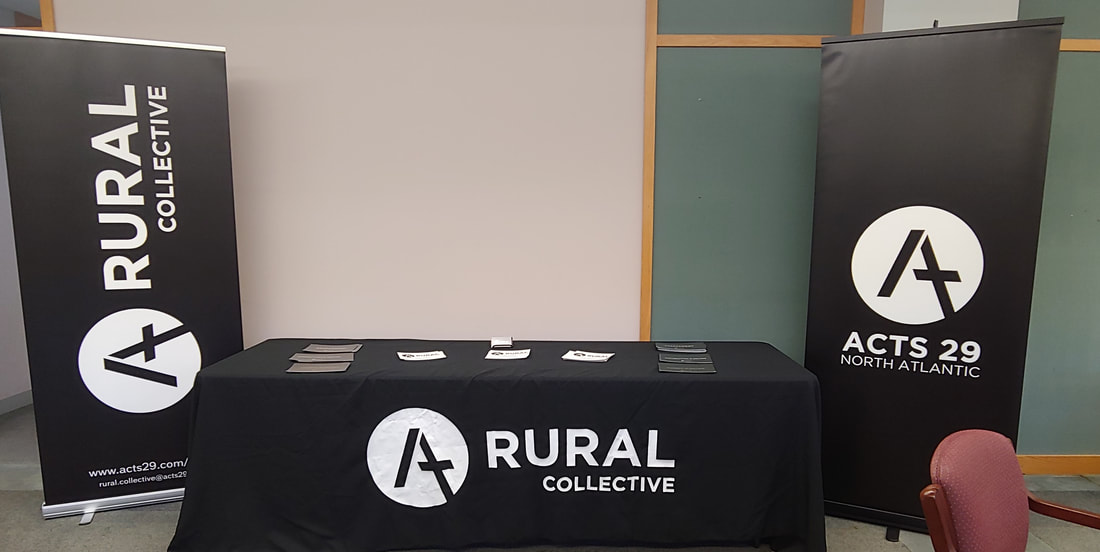
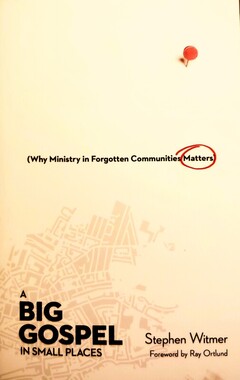
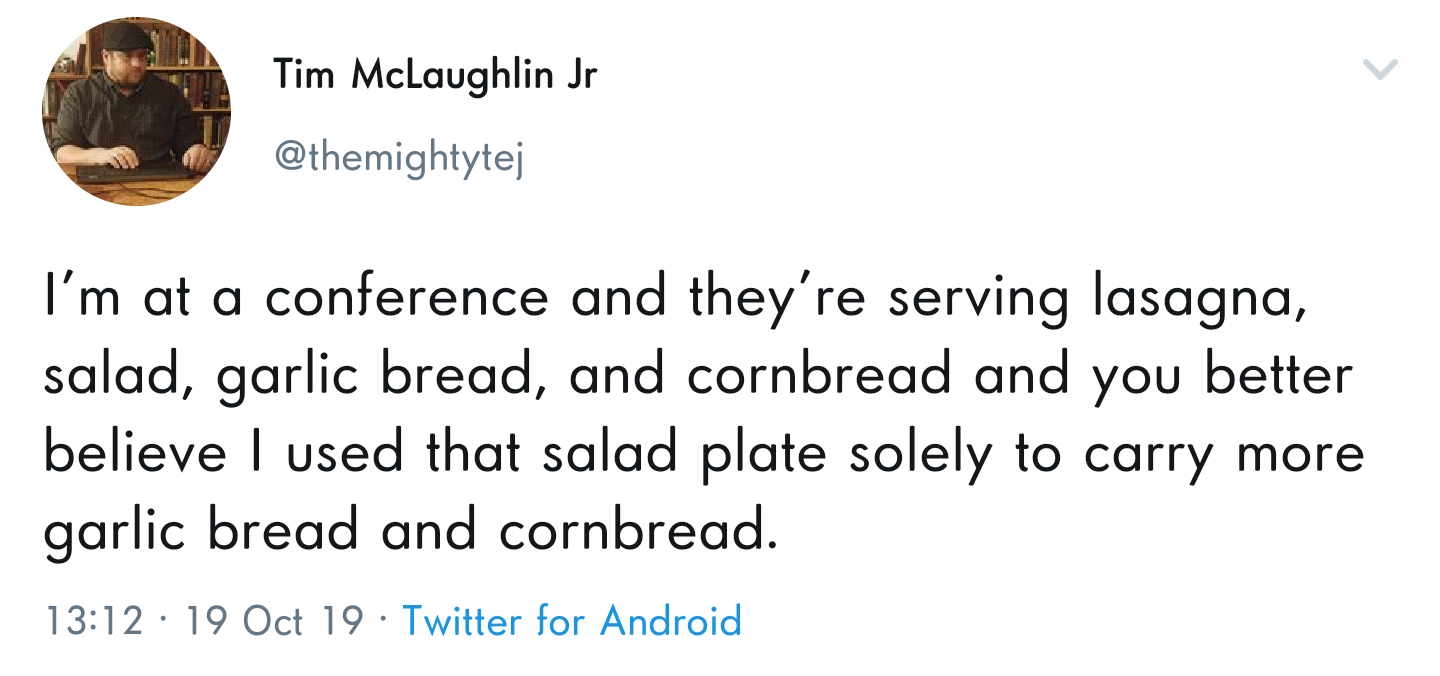
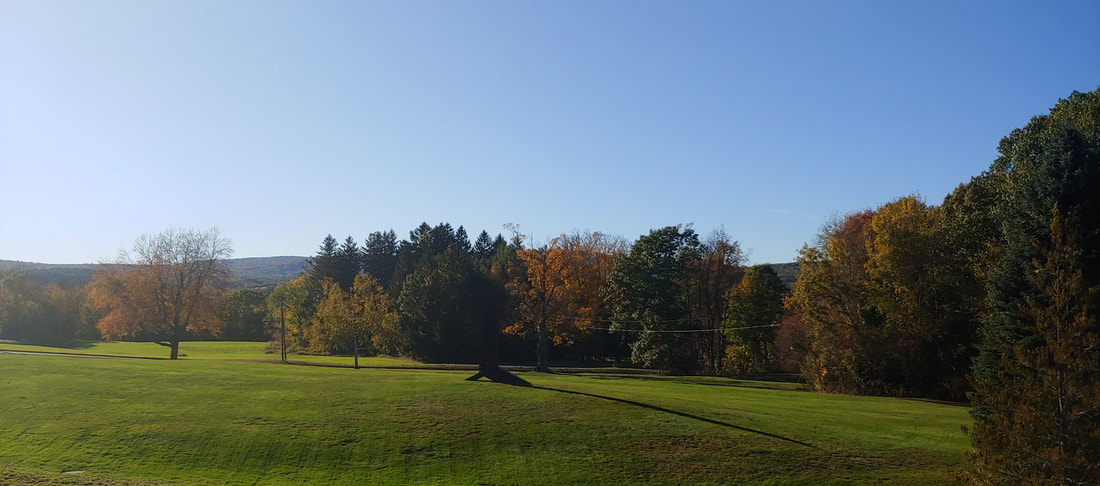
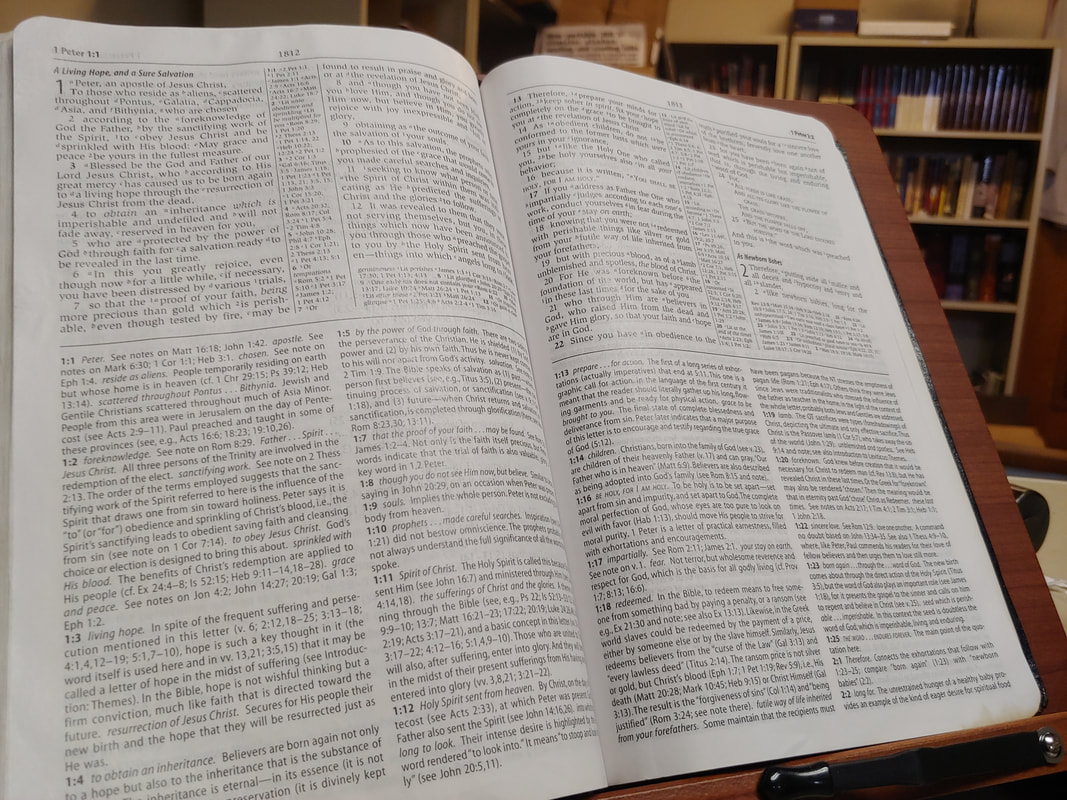
 RSS Feed
RSS Feed
